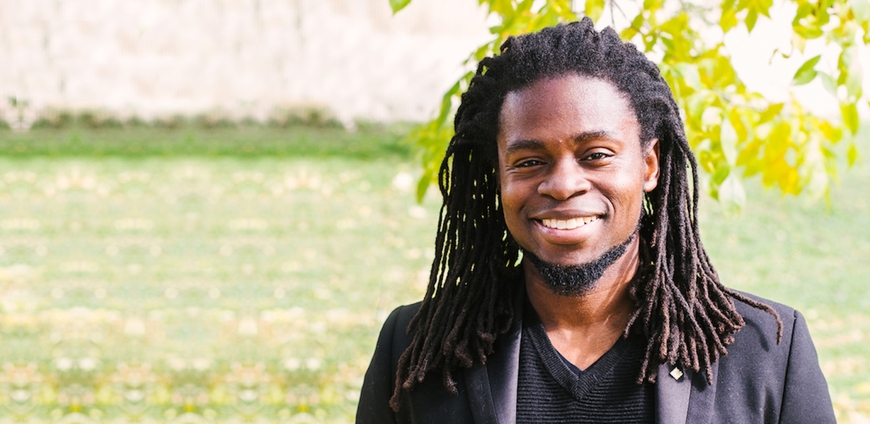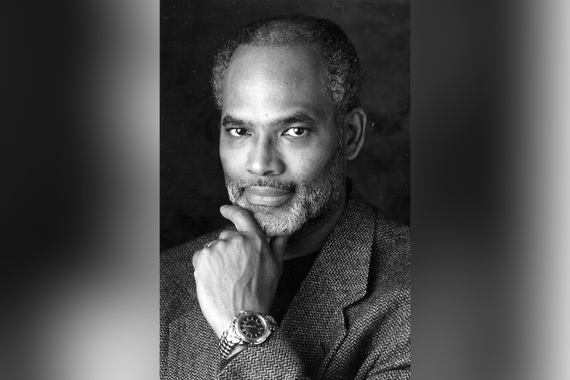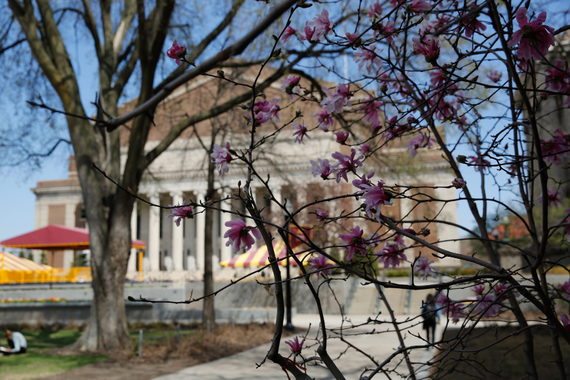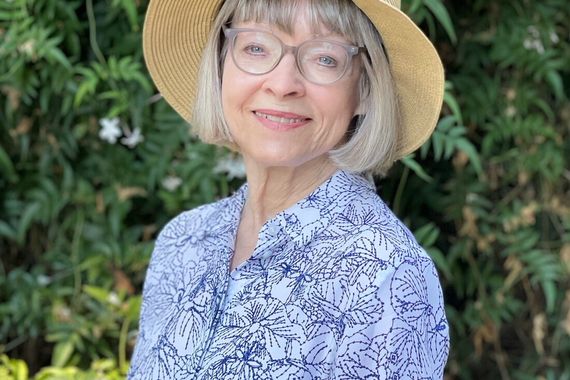Bringing the “nice” into healthcare
If it’s broken, you fix it. That could well be a key principle for Thompson Aderinkomi (BS ‘02 economics and statistics, MS ‘04 statistics, MBA ‘11). In response to inequities and roadblocks to accessible, solid healthcare, he co-founded and is CEO of Nice Healthcare, a technology-enabled primary care clinic that delivers all care in the comfort of the patient’s home and contracts directly with small employers.
Aderinkomi built the innovative delivery model on solid experience. He co-founded RetraceHealth in 2013, a direct primary care medical practice that went on to raise more than $7 million in venture capital funding from Twin Cities health investors and large companies to increase the scale and access of primary care. Former Governor Mark Dayton appointed Aderinkomi to the inaugural board of directors for the MN Health Insurance Exchange (now MNsure), in April 2013. He also co-founded Healthcare.mn, the Twin Cities premier organization for healthcare entrepreneurs, which grew to more than 2,000 members.
He is a panelist on the Black Identity in the Workplace virtual event, Noon –1:00 PM (CT), February 23, for Black History Month and part of UMAA’s Career Month, moderated by the Black Alumni Network.
After nearly a year of addressing the COVID-19 pandemic, Aderinkomi offered observations and insights into the opportunities the healthcare industry offers, especially to those grounded in the liberal-arts approach to addressing contemporary challenges:
What has the pandemic revealed to you?
It’s made it really clear how our healthcare system is set up wrong. The system should not have missed a beat during the outbreak of COVID-19. But the flaws are in the structure. It reflects inequities of access and systemic racism. Minnesota is great, but I don’t believe we should be patting ourselves on the back. Our state and institutions are just as complicit about these failures as anywhere else in this great nation.
How has COVID-19 affected Nice Healthcare?
We literally had to make zero changes to our business model and strategy because we built a healthcare company the way it should be built. The more we build to be responsive and adaptable, the more likely we can withstand the impact of a crisis like COVID-19.
What would you say about the value of your CLA degree?
I started out ready to study to become a paleontologist. Then a zoologist. In 1998, I was a zoology major.
Then when I came to CLA, I got exposed to many disciplines and industries including economics. I found my home. Through economics I was exposed to statistics and it all became clear.
The broad strokes and deep dives of the liberal arts allowed me to find my place in the world. I’ve been thankful for CLA, where I was able to process what I was learning and realize the opportunities before me. The small enrollment in the department was a great advantage. The faculty demanded the discipline that everyone needs in their job. And what set me apart from others is that there are so few with degrees in statistics and economics.
What about the faculty stood out for you?
The relationships that could be established. And I do remember one econ professor in particular, Edward Prescott who was awarded the Nobel Memorial Prize in 2004 who talked about life too, in addition to economics, in a way other faculty did not. That made an impression on me at a young age.
Who’s one of your heroes?
President Barack Obama. What he did and the speed with which he did it, is just astonishing. He is an inspiration to me.
What’s your long-term goal?
To be a more successful husband and father. I don’t want to be successful in business and then not be successful in those other two areas. I just want to live a life where I can inspire others.My wife Hannah is my counselor, friend, adviser in all my decisions. She’s also a UMN grad, she graduated with a degree in family social science and violence prevention in 2004. She now runs a very successful business, Mill City Laser.
What are some important resources for you?
You are the people you draw around you. I connect regularly with a small group of people who are also business owners and entrepreneurs. Not only do I enjoy the discourse, but they challenge my thinking. It’s important to have people you respect and who might even disagree with you in your life in that way.
Why encourage CLA students and alumni to go into the healthcare industry?
Healthcare is 20% of GDP so there’s plenty of room for people to join. There’s going to be major industry changes in the future, and the industry needs people who can grasp and offer viewpoints that are outside the conventional health industry. We need to have people who can think in terms of a wellcare system instead of sick care...and that goes for the clinicians and beyond. Too many have been asleep on the job and they’ve calcified.
Of course, medical devices, for example, need a certain background. But on the services side...good service...well, that’s a product they want to get better. That’s really what it takes.
Even if you’re outside of healthcare, even 10 years out, think about what your industry does well and that can be applied to healthcare. Bring that with you into the industry. One person can make an impact.
What do you think will happen next in the healthcare industry?
The healthcare industry really needs them [liberal arts graduates].
Unlike other industries in the US, in the last 50 to 70 years the healthcare industry has been allowed to do whatever it wants. That has caused it to suffer along with the people it is supposed to serve. It is now time for other sectors in our economy to take back healthcare or it’s just going to get worse. Wages are stagnant. Life expectancy has dropped. Our global status is eroded. And you can tie all of it to runaway healthcare costs.
I am optimistic. I believe we can change it for the benefit of everyone. I want it to happen faster. And my role is to make it happen as quickly as possible.



